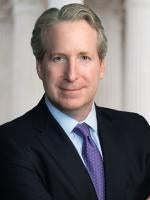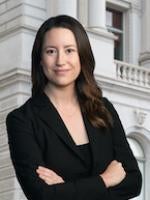Highlights
U.S. Supreme Court rules that False Claims Act knowledge standard is based on defendant’s subjective belief at the time claims are submitted
The Court rejected several lower courts’ importation of the Safeco objective reasonableness standard to the False Claims Act
A post-hoc interpretation of law that is objectively reasonable can no longer serve to shield against a finding of scienter under the False Claims Act
On June 1, 2023, the U.S. Supreme Court issued a unanimous opinion in the consolidated cases of United States ex rel. Schutte v. SuperValu Inc. and United States ex rel. Proctor v. Safeway, Inc., holding that a defendant’s subjective belief is paramount when determining whether the scienter standard is satisfied under the False Claims Act. The Supreme Court’s decision revives the pair of lawsuits alleging the grocery store chains overcharged the government for certain prescription drugs, and is what many are calling a “game changer” in the world of False Claims Act enforcement.
Background
The consolidated cases concerned qui tam whistleblowers (also known as “relators”) alleging that SuperValu and Safeway – nationwide grocery store and pharmacy chains –violated the False Claims Act through their implementation of a prescription price matching discount plan. When SuperValu and Safeway submitted claims for reimbursement to the Centers for Medicare and Medicaid Services (CMS), they reported the “usual and customary” prices of prescriptions as the typical retail price instead of the discounted price. The relators alleged both entities knew that the discounted price should have been reported as the usual and customary price and, by failing to do so, they “knowingly” submitted false claims to CMS.
Both SuperValu and Safeway secured summary judgment in their favor at the district court level, with the courts finding the scienter element – in other words, the defendant’s intent or knowledge at the time a claim is submitted to the government – had not been satisfied because the defendants offered an objectively reasonable interpretation of “usual and customary.” Consequently, the district court held that the evidence of subjective intent presented by the relators was irrelevant. The relators appealed and the U.S. Court of Appeals for the Seventh Circuit affirmed those decisions.
In doing so, the Seventh Circuit joined several other federal circuits in adopting the standard articulated by the Supreme Court in Safeco Ins. Co. of Am. v. Burr, which provided that subjective knowledge is irrelevant to whether a defendant violates the Fair Credit Reporting Act (FCRA). In other words, under Safeco, so long as a defendant’s interpretation is objectively reasonable and no authoritative guidance instructs against such an interpretation, the defendant is not liable.
Importing this standard to the False Claims Act context in SuperValu and Safeway, the Seventh Circuit held the pharmacies did not “knowingly” submit false claims because it was objectively reasonable – though wrong – to interpret “usual and customary” price to refer to retail cash prices. It reasoned that under Safeco “a defendant’s subjective intent does not matter for its scienter analysis – the inquiry is an objective one.” The relators subsequently petitioned the Supreme Court, asking it to hold that the False Claims Act’s scienter requirement does turn on the defendant’s subjective beliefs.
The Supreme Court’s Resounding Agreement That Subjective Belief Matters
The Supreme Court unanimously reversed the Seventh Circuit, holding in an opinion by Justice Clarence Thomas that “[w]hat matters for an FCA case is whether the defendant knew the claim was false.” The Court rejected the Seventh Circuit’s objective reasonableness standard, noting that “[t]he FCA’s scienter element refers to [a defendant’s] knowledge and subjective beliefs – not to what an objectively reasonable person may have known or believed.”
In particular, the Court pointed out that the False Claims Act prohibits “knowingly” presenting false claims and defines “knowingly” to encompass three mental states concerning the information alleged to be false – “actual knowledge,” “deliberate ignorance,” and “reckless disregard.” The Court reasoned that this definition tracks the common law scienter requirement for fraud, and focuses “primarily on what [defendants] thought and believed.” Accordingly, the Court held that False Claims Act plaintiffs can establish scienter by showing that defendants 1) “actually knew” that their interpretation was incorrect when they made the claim at issue, 2) “were aware of a substantial risk that” their interpretation was incorrect and “intentionally avoided learning whether [it was] accurate” or 3) “were aware of such a substantial and unjustifiable risk but submitted the claims anyway.”
In reaching this conclusion, the Court rejected a number of Supervalu and Safeway’s arguments in support of the “objectively reasonable” standard. First, the Court held that ambiguity in a statute or regulation does not preclude a finding of knowledge under the False Claims Act. In other words, whether “other people might make an honest mistake” as to the meaning of “usual and customary” is irrelevant to determining whether a particular defendant makes an honest mistake in interpreting that statute or regulation. In Supervalu and Safeway, the relators presented evidence that the grocery store chains believed that the discounted price – the price they chose not to report to CMS – should have been reported as the “usual and customary” price. The Court explained that if that were true, the relators could argue that the grocery store chains “actually knew what the phrase meant” or “were aware of an unjustifiably high risk that the phrase referred to their discounted prices.”
Second, the Court rejected respondents’ reliance on the Safeco objective standard. It held that because the Safeco holding was tailored to the particular text of the FCRA, it was irrelevant to the interpretation of the False Claims Act.
Finally, the Court rejected the grocery store chains’ argument that the claims were not actionable because common law fraud, and the False Claims Act, do not reach misrepresentations of law. The Court reasoned that in submitting the retail price as the “usual and customary price,” the grocery store chains did not merely make a representation of law but instead “implied facts about their prices that were not known to the plan sponsors, pharmacy benefit managers, and state Medicaid agencies that received their claims.”
Key Takeaways
The Court’s decision represents a significant shift in what is required to prove False Claims Act liability. To date, several federal circuits have embraced the “objectively reasonable” standard. Now, those courts must face replacing that standard with a focus on a False Claims Act defendants’ subjective beliefs. Such a shift will almost certainly – as the grocery store chains pointed out – make it more difficult to resolve questions hinging on a defendants’ knowledge. The inquiries will be more fact-intensive and the matters will likely require litigation beyond summary judgment. Ultimately, the Court’s decision makes it more important than ever that corporate regulatory compliance departments carefully evaluate ambiguous legal interpretations of relevant statutes and regulations prior to the submission of claims.







 />i
/>i
